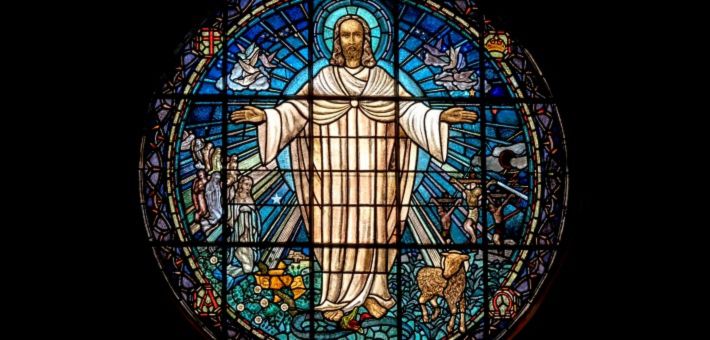Commentary on Acts 17:22-31
As Paul stands in the midst of the Areopagus or Mars Hill, he speaks to the people of Athens, an intellectual capital of the Roman Empire. Acts intentionally locates this scene here to present the intellectual and philosophical legitimacy of the movement (hē hodos) of Jesus followers. In Acts, Paul can stand toe-to-toe with the most sophisticated thinkers in the Mediterranean world. The gospel is indeed simple enough that unlearned fishers in Galilee can comprehend it, but it is also mentally stimulating enough for lovers of Greek literature to appreciate. Moreover, Paul tells these erudite Athenians that they are ignorant. This is a bold statement to make in the place that had been home to Socrates and Plato, and Paul uses this trope of ignorance to present his message. Below we will examine the promise and pitfalls of this trope, and we will discover strategies for engaging this text to engage wonder, justice, and inclusion.
After Acts has Paul note the religiosity of the Athenians, he brings attention to an altar (bōmon) with an inscription dedicated to the Unknown God (Agnōstō Theō) (Acts 17:23). Paul’s statement about the Athenians’ worship practices is certainly pejorative. It would not be unfair to translate his statement as saying that the Athenians are very superstitious (hōs deisidaimonesterous) in an unflattering way (Acts 17:22). They are so bad, to him, that they even worship what they do not know. He uses this as an entry point to launch his message.
There are a few admirable points from Paul’s engagement with the Athenians and there are some that are dangerous especially if people emulate them in contemporary times. It is admirable that Acts portrays Paul as paying attention to that which mattered to the Athenians. He observes their practices and, in his message, he even quotes their poetry (Acts 17:28). In this way, Acts presents Paul as cosmopolitan and worldly.
It is also admirable that Paul understands his God as synonymous with the Unknown God. Although for Acts, God is not unknown to Paul, which becomes clear after he gives his interpretation of the god to whom the altar is dedicated. Before moving too swiftly into Paul’s exegesis of the altar’s inscription, it is significant to linger with the idea of Paul’s God, Jesus’ God, Acts’ God as being unknown. It is worth considering what the Athenians had right in seeing the divine as in some ways unknowable. The transliteration of the Greek behind “to the unknown” (agnōsto) is etymologically connected to agnostics, who affirm that they have questions about God, God’s role in the world, and God’s role in their lives. This passage affirms that Unknown God is indeed a name for the God of Acts.
Acts’ Paul at once accepts the moniker of Unknown God and rejects it; that rejection can be dangerous. A dangerous aspect of Paul’s speech is that he caricatures the practices of the Athenians. He assumes that they are ignorant and that he possesses knowledge that they do not have. He explains that God as the maker of the cosmos is incapable of living in temples made with human hands (cheiropoiētois). This is the same critique and wording that Stephen raises against the Jerusalem Temple in Acts 7:48. In both instances, Acts diminishes the worship practices of others in order to elevate the message of the Jesus movement (hē hodos).
Uncritically accepting Acts’ representation of others’ practices flattens the experiences of those practitioners, and it misrepresents their faith as facile and immature. Jewish people understood that God could not be confined in the temple, and clearly the Athenians understood that the divine was larger than one place, which is why they had so many. Systems of logic that ignore such realities have vicious afterlives—afterlives that have claimed that Jewish people deserved their temple to be destroyed and afterlives that Christian colonizers used for compelling people from other nations (ethnē) to abandon ancestral practices. One can avoid these dangerous afterlives by focusing on other aspects of the message. The message does not have to put others down or diminish their practices to still be persuasive.
Paul’s message about the Unknown God does not deny the Athenians’ wisdom nor does it call for a destruction of their ways of knowing. It acknowledges that from one, God made every family (ethnos) of humans to inhabit the face of the whole earth (Acts 17:26). Each family and group of families has its own knowledge and quest for God, the God in whom we all live, move, and exist (Acts 17:27,28). This God who is knowable yet ultimately unknown is close to everyone. From this vantage point, the next part of Paul’s message should be read less as an indictment on difference and more about the value of all humans.
In quoting the Greek poet (either Aratus or Cleanthes), Acts’ Paul demonstrates that all humans are a part of God’s progeny (genos), which provides a glimpse for us into what divinity looks like. Divinity does not look like gold, silver, or stone. It looks like people. Missing God’s closeness and God’s resemblance to humanity is the foundation of ignorance (agnoias, Acts 17:30). This type of ignorance is different from the ignorance connected to the unknowability of God. This type of ignorance is linked to not recognizing other humans as family members.
The solution in Paul’s message for those who do not see and treat other humans as divine siblings is to repent (metanoein; Acts 17:30). Repentance refers to a change in mind, which leads to a change in behavior. For Acts, humans must change their mind, because God has selected the resurrected Jesus as the one who will judge people by the standard of justice (dikaiosunē). Justice is the bar. The assurance or reason that one can trust (pistin) that justice is God’s goal is evidenced by how God responded to Jesus the Just One, who was executed unjustly. God raised him from the dead. The Unknown God made Godself a bit more known through favoring fairness over physics.


May 14, 2023